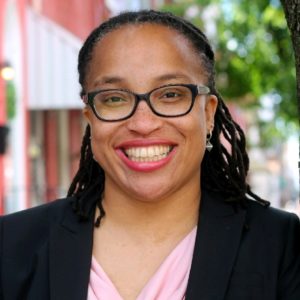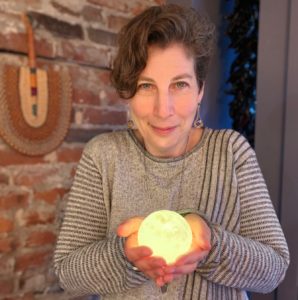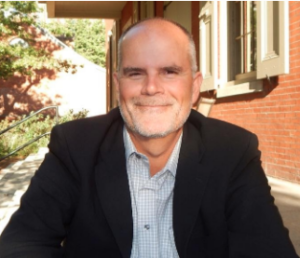Does the local nonprofit sector have the collective agency to make change and move us toward just recovery?
 February 22, 2021
Category: Featured, Long, Purpose
February 22, 2021
Category: Featured, Long, Purpose
In the wake of the pandemic and the social injustices it exposed, is a new model for service leadership emerging?
A change agent style more dependent on social media than traditional media, donations and crowdsourced funding rather than grants, and a plan of action driven by clients’ immediate needs and removing bureaucratic barriers to service instead of funders’ demands. For example:
- In Camden, unwilling to await on city officials, activists Connie Kellum and Tawanda Jones opened the city’s only Code Blue warming center to help homeless residents weather the cold. Except for permission to use a school gym, WHYY reported that the center runs on donations and volunteers solicited through Facebook. It also offers haircuts, entertainment, food, and support for finding housing, jobs, and rehabilitation services.
- The Black Doctors COVID 19 Consortium was created with the same do-it-now credo. “I just couldn’t be part of another town hall meeting or watch another webinar or talk about how pervasive the social determinants of health care and not do anything,” founder Dr. Ala Stanford has often said of her decision to create and self-fund a COVID-19 testing operation that went into poor communities and provided free testing — and now vaccinations — to the most vulnerable.
- A recent New York Times article reported how a Reddit site — r/Unemployment — has been a go-to for those struggling with questions around unemployment benefits but unable to get clear answers. “Faced with a seemingly impenetrable bureaucracy between them and a financial lifeline, many have turned to what seems like the only place left to go for help — the internet.” The story’s title? “What Reddit Does That the Government Doesn’t.”
And it isn’t only individuals that have stepped up where local, state and federal governments have left a void.
Nonprofits have been working in uncertainty as they try to keep a basic needs safety net beneath their clients, their agencies from folding, their staff from burning out and their boards of directors encouraged. This against the backdrop of a pandemic that has starkly unveiled that race-based neglect has permeated every system in the country — from healthcare and education to housing and jobs.
“It’s almost like the power grid in Texas,” said Farrah Parkes, executive director of Gender Justice Fund.
Generocity has been taking the pulse of nonprofit leaders since July 2020, and in the recently released second Regional ‘Just Recovery’ Self Assessment asked nonprofit leaders to grade the state of recovery efforts, especially in the areas of public health, community engagement, economic resiliency, and racial equity relative to their expectations. In every area, grades have plummeted precipitously from the previous survey taken in October.
One major red flag is the grade the respondents to the assessment gave for the healthcare response to the crisis, which fell to an F from an A – and this before the vaccine scandals that have rocked the Philadelphia’s Department of Public Health.
And while these leaders uniformly see their own organizations as positively contributing to the recovery, they still only rate themselves the equivalent of a D. “Every one’s just trying to keep their heads above water right now,” one respondent lamented.
Another leader described the government’s response as “shockingly inadequate, disorganized, and racially inequitable that while I can give many an A for effort, I can’t ignore actual performance.”
These comments beg the question — does the local nonprofit sector have the collective agency to make change and move the City’s ineffective systems in the right direction?
“You are asking if not us, then who?” said Anne Gingerich, executive director of the Pennsylvania Association of Nonprofit Organizations (PANO).
But any implication that nonprofits aren’t doing enough to lead just recovery efforts makes the philanthropic leaders who fund those local nonprofits and grassroots organizations bristle.
“Under ‘regular’ circumstances, nonprofit leaders are some of the most resourceful and dedicated people you will ever meet, and I can’t imagine commenting on the quality of their leadership except to profess my profound gratitude,” Molly de Aguiar, president of the Independence Public Media Foundation said.
“Imagine having to keep your employees healthy and safe in the middle of a global health crisis, while also scrambling to adapt your work and find new ways to make money, because you can’t earn it from events, galas, and services like you used to. Imagine not knowing if funders are going to cut your grant or trying to navigate the Paycheck Protection Program,” she said.
Sarah Martinez-Helfman, president of the Samuel S. Fels Fund, added, “I think it’s important to recognize that this time is taking a toll on nonprofit staff and leaders, especially those who have been on the front lines during the COVID-19 pandemic and/or who have family members who have been affected.”
They also argue that there are scores of nonprofit organizations in the Greater Philadelphia area that have quietly pivoted from their mission statements or taken on different work to help their community thrive. Groups like Juntos, SEAMACC, and Community Legal Services, were only a few cited as examples of these change agents.
“Leaders who inspire me most are slowing down as the challenges speed up. They are not acting from habit, but are listening to their staff and the people they serve, and are responding with trust,” said Martinez-Helfman
However, with the return to a pre-pandemic state looking ever less likely, what does it mean for clients when the government response is failing, and overburdened agencies are flailing?
“First of all, we are not going to return to normal and we don’t want to go back to normal. That is where there are racial disparities. We need a new paradigm, and we want it to be different,” said Joe Pyle, president of the Scattergood Foundation, who added that we are in the midst of not one but three intersecting crises — a health crisis, an economic crisis and a mental health crisis.
How to get to that new paradigm is less clear.
Most agree that a critical step is to broaden the diversity of perspectives at the table.
“I’d like to think that more funders are listening too, and that as we increase our unrestricted grants to respond to the immediate crisis, we’ll also increase unrestricted dollars for organizing groups led by the people closest to the harms,” Martinez-Helfman said.
Pyle added that leaders must ask themselves whose voice is missing from their circle of decision-makers.
Another suggestion for the new normal is increased collaboration across the nonprofit sector.
One of the groups charged with nonprofit advocacy is PANO which has 1,000 members who employ over 30,000 people. “The challenges have skyrocketed,” said Gingerich. “Leaders in the nonprofit space have linked arms in new ways. I found this year, for example, an increased willingness to share resources. What I think is still needed is to help with the broader needs of the nonprofit community in a collaborative way.”
Gingerich said her membership has grown substantially over the past year but it still only represents 2% of the possible nonprofits. And a more robust membership role could translate to more nonprofit clout in Harrisburg.
But some, like Parkes, questioned the advisability of asking a nonprofit service agency to change governmental systems.
“Government should ask nonprofits for advice,” she said, adding, “It is hard to find balance between doing the work and finding the energy and resources to argue at City Hall.”
De Aguiar goes even further. “If anything, we should be scrutinizing whether philanthropy and local government made nonprofit leaders’ lives harder or easier last year, and discussing how we are going to significantly improve and expand our support for them,” she said.
“We, with the power of our resources, should be the ones held accountable,” de Aguiar said.
Project
TRACETrending News













